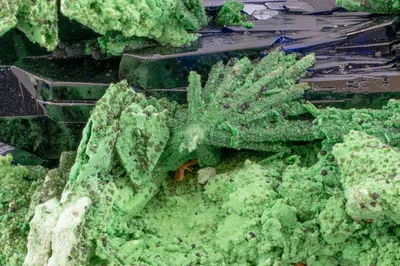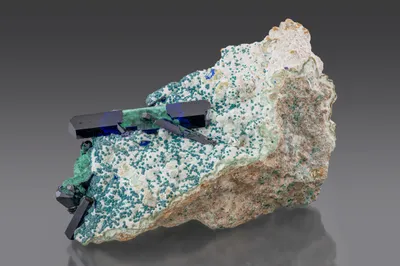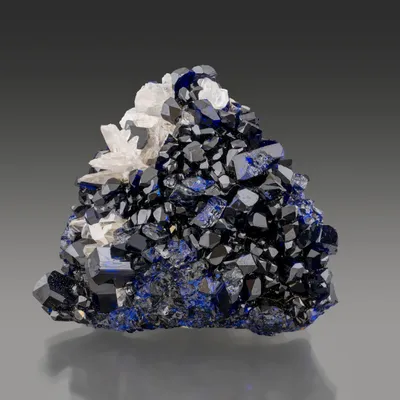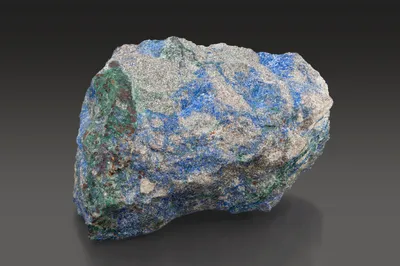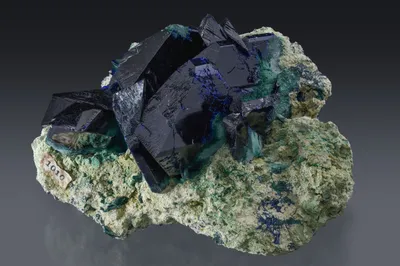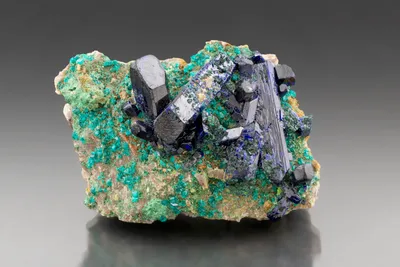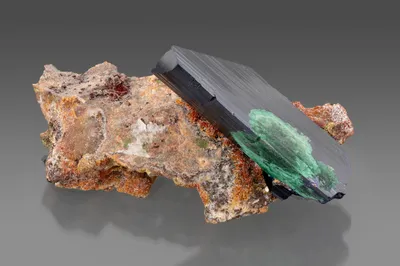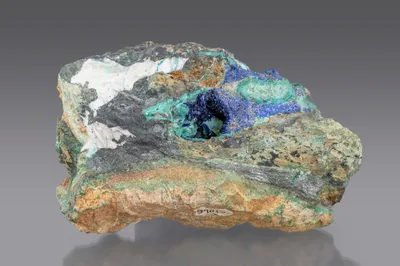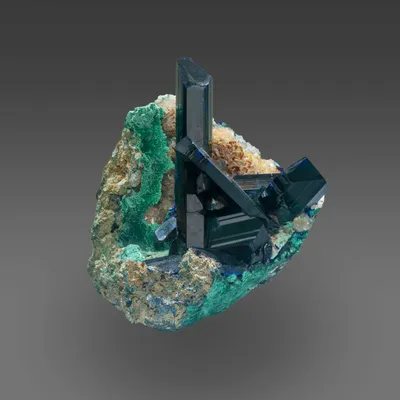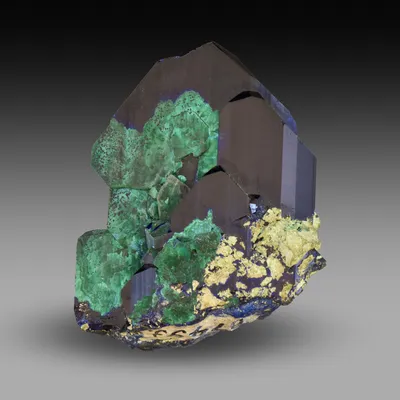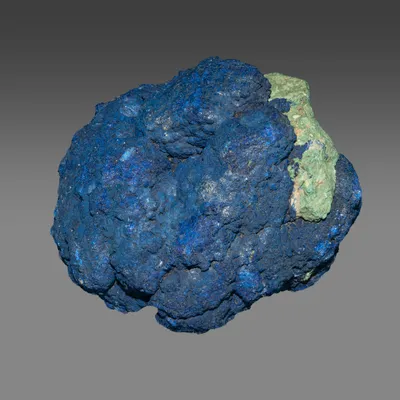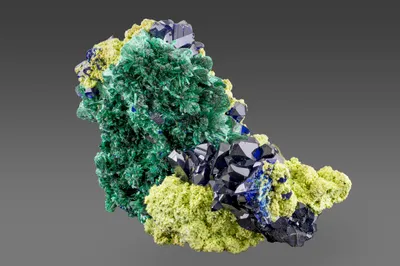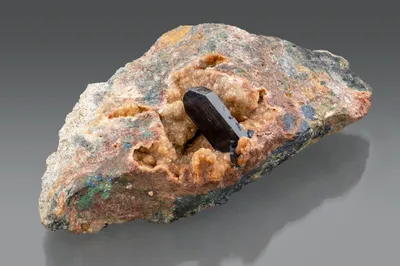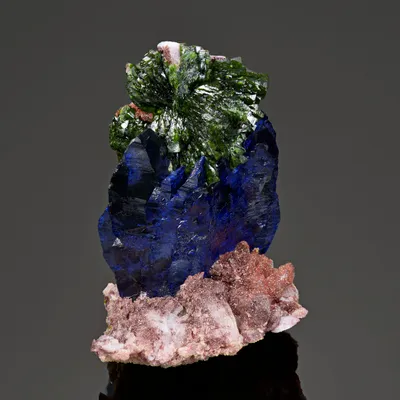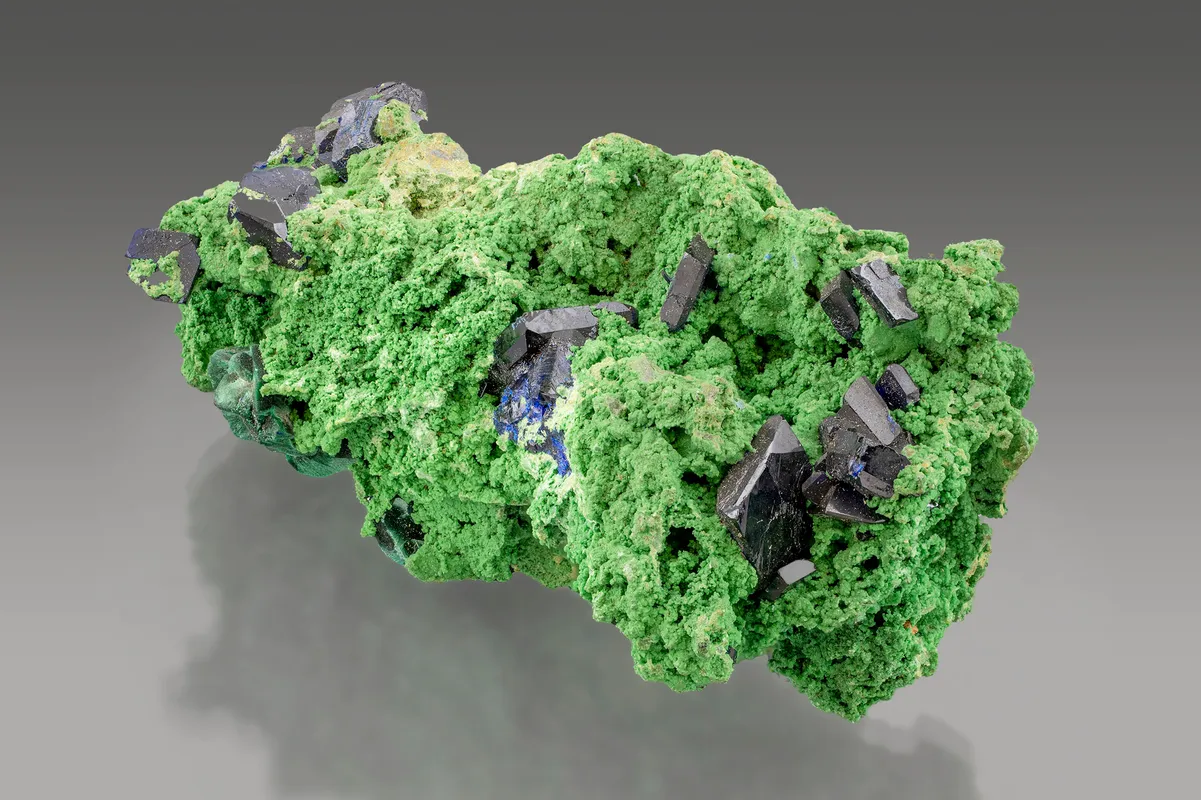
Image Credit: Malcolm Southwood
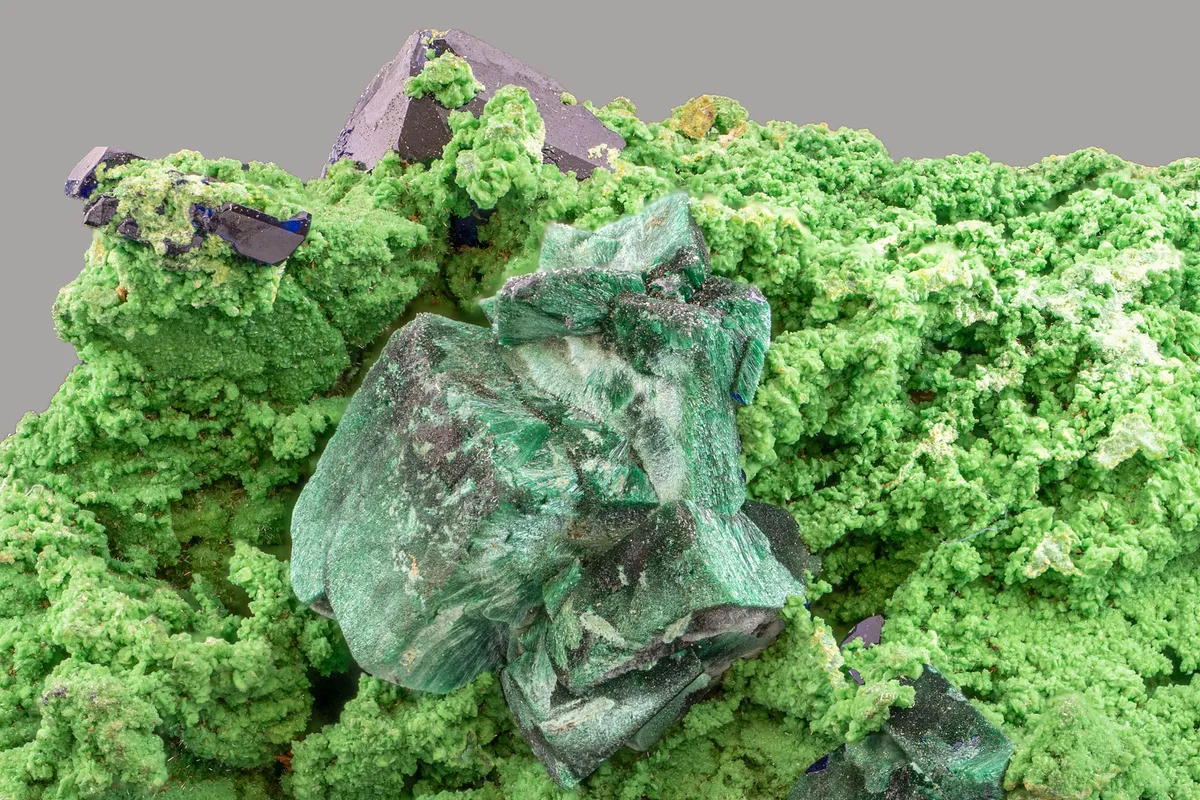
Image Credit: Malcolm Southwood
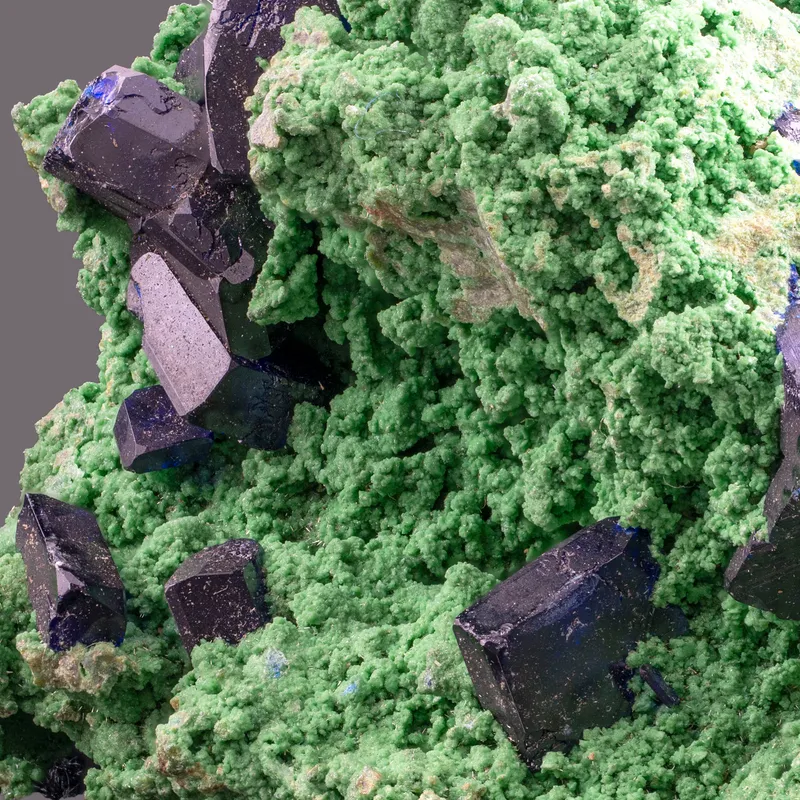
Image Credit: Malcolm Southwood
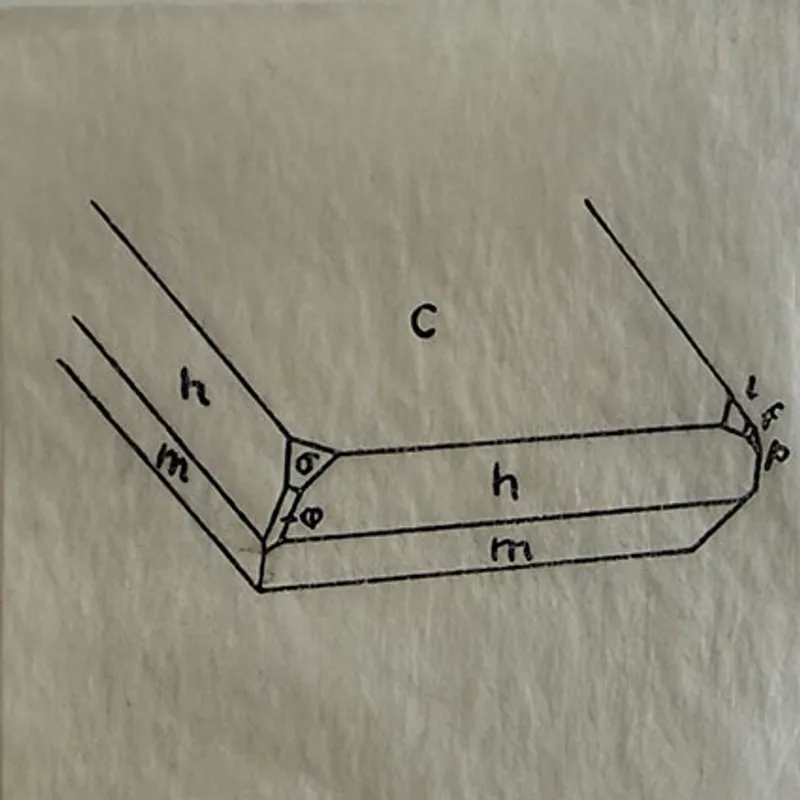
Image Credit: MGMH archive
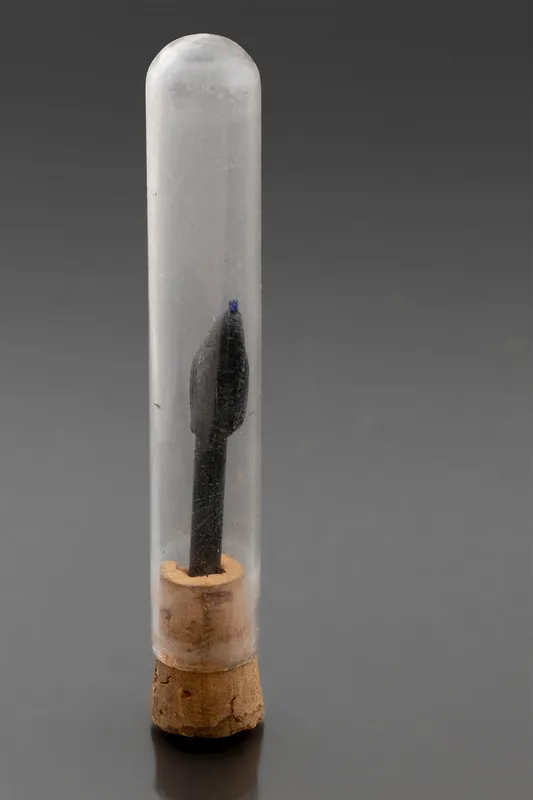
Image Credit: Malcolm Southwood
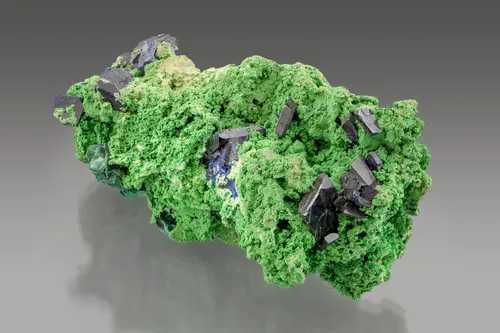
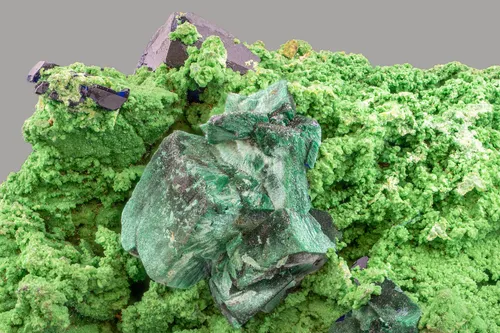
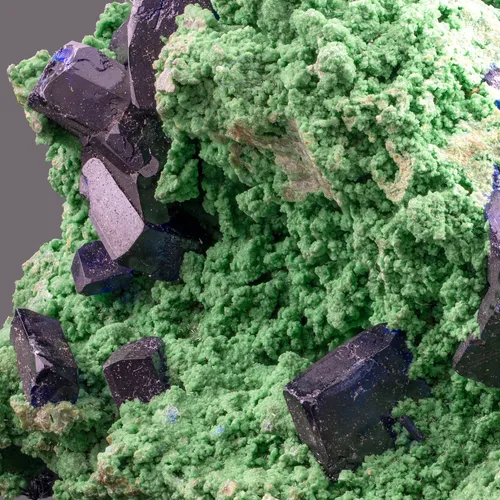
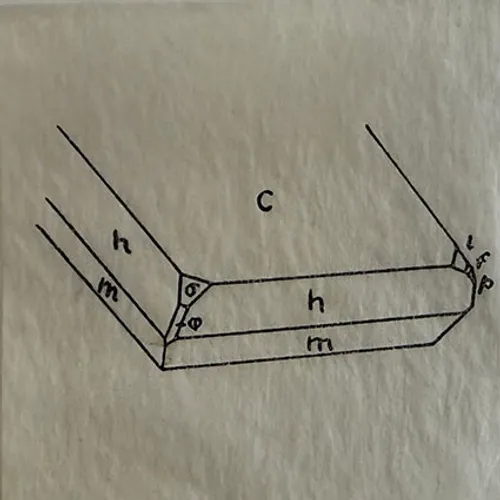
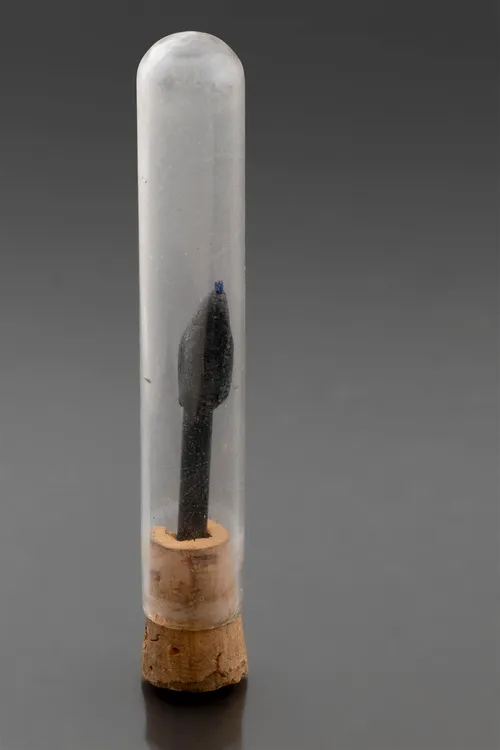
Specimen Title
Azurite
Associated Minerals
arsentsumebite (?); gartrellite (?); malachite
Principal Mineral
Size
Cabinet; 51mm
Location in the Mine
First oxidation zone
Provenance
Palache, C.
Collection
MGMH; 87484b
Entry Number
Specimen; TSNB682
Description
Azurite crystals (to 6 mm), mostly lustrous and unaltered, but with one group extensively replaced by malachite (Exhibit 2). These crystals rest on a matrix of green and yellow Cu/Pb arsenates – possibly arsentsumebite (?) with subordinate gartrellite (?), although these are not verified – which also appear to be partly pseudomorphous after an undetermined precursor.
The specimen is of historical interest because it was figured in the azurite monograph of Palache and Lewis (1927; their figure 29) to illustrate their "Type 12" azurite habit from Tsumeb (Exhibit 3), which they described as: "…tabular parallel to the base … with c [(001)] dominant and m [(110)] and h [(221)] prominent…" with other forms present: 𝜎 (101), 𝜙 (201), 𝑙 (023), f (011), p (021) and λ (-2 18 3) (Exhibit 4).
Exhibit 5 shows a crystal from this specimen mounted for measurement on the goniometer by the authors of the 1927 azurite monograph, Charles Palache and Lyman Lewis.
The specimen is from the collection purchased by Charles Palache during his visit to Tsumeb in December 1922, which dates it to the upper part of the first oxidation zone (i.e. 8 Level or above).
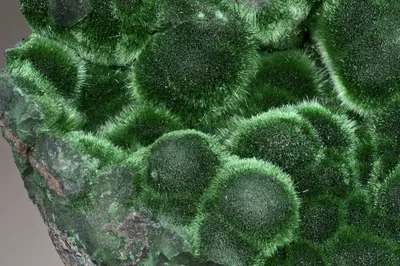
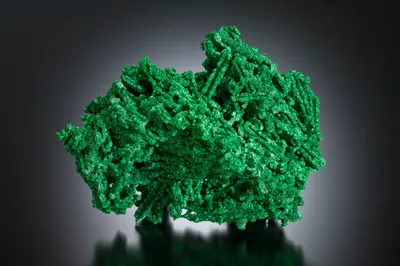

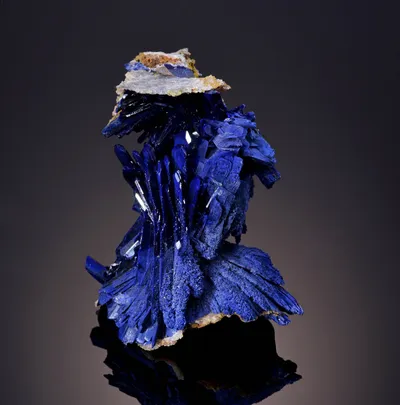
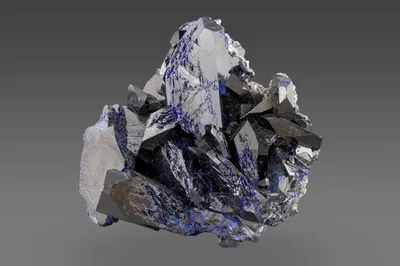
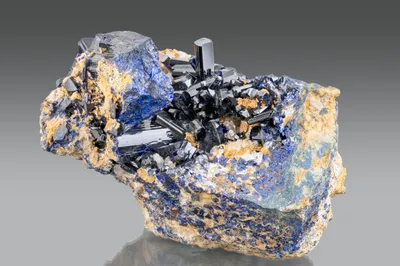
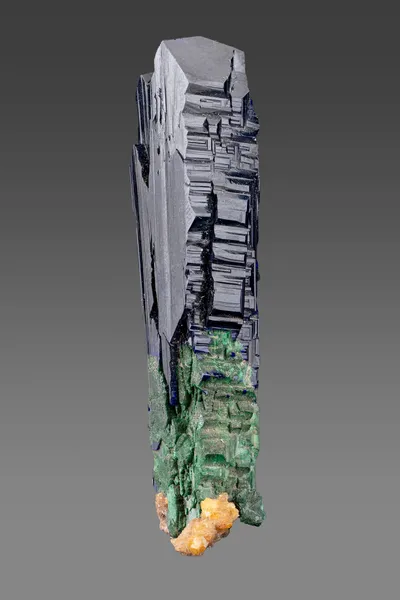
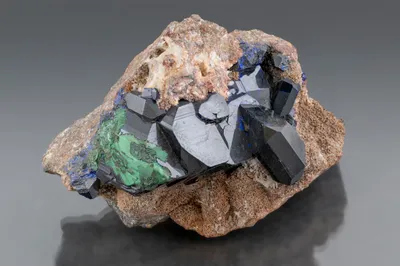
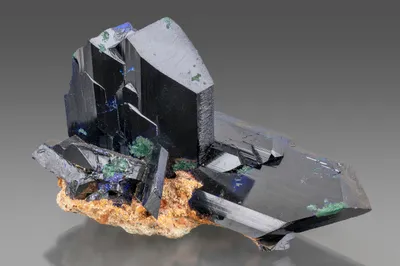
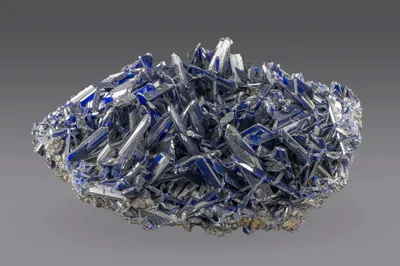

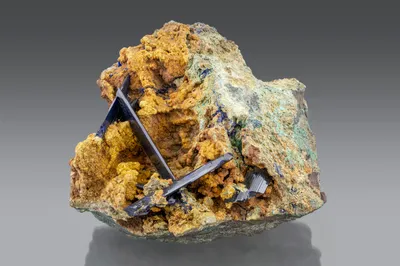

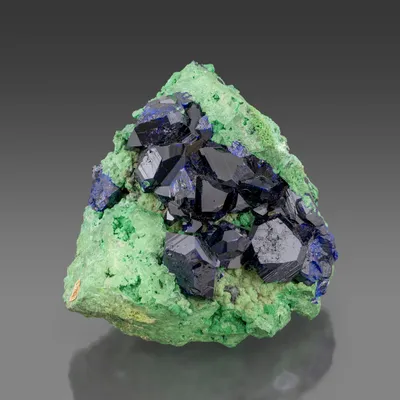
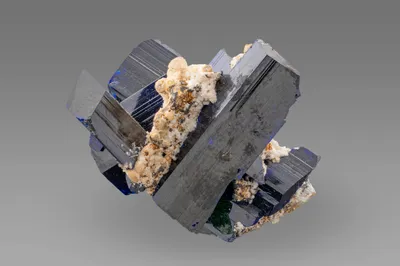
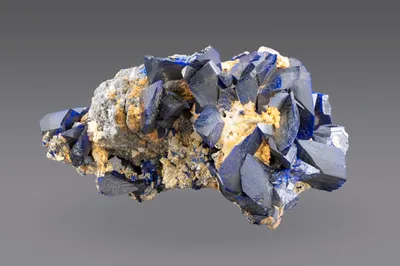
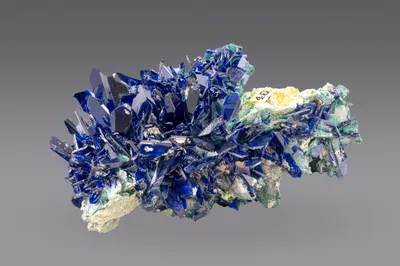
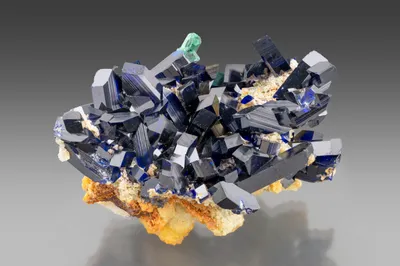
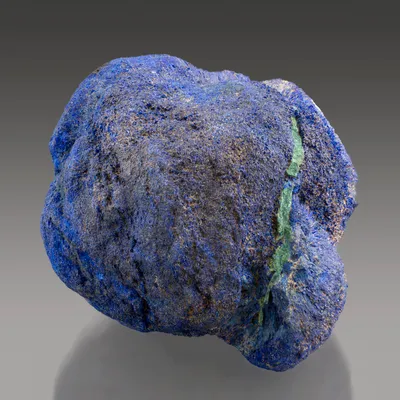
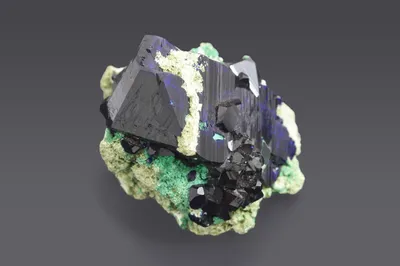
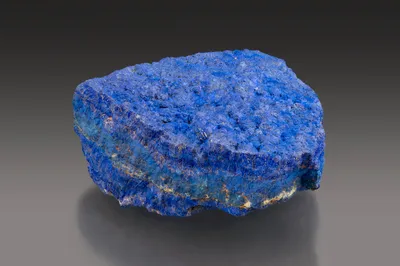
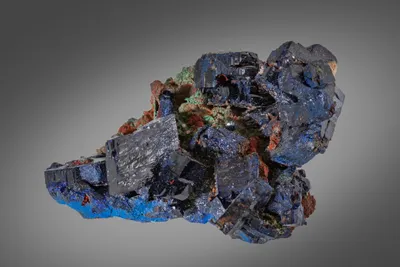
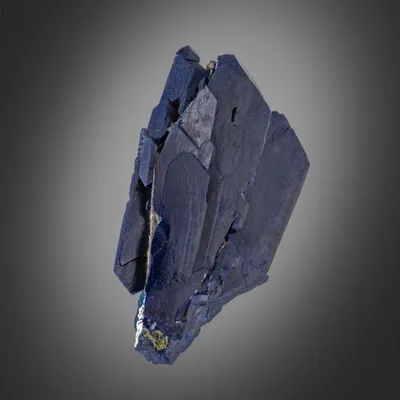
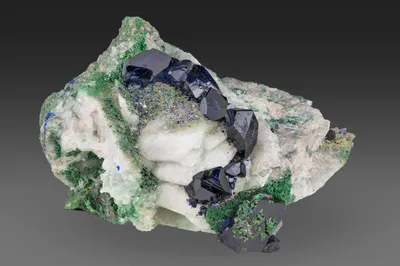
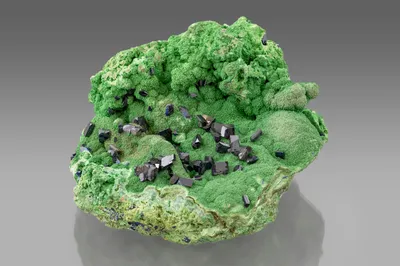
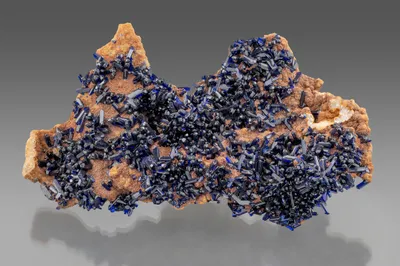
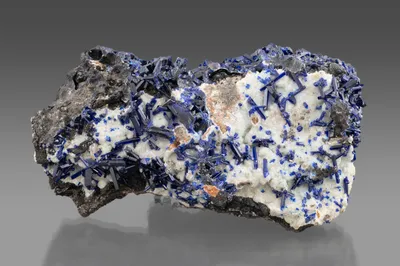
on_Smirthsonite_88mm_Southwood.CN3WXUeN_Z1ChNF9.webp)

